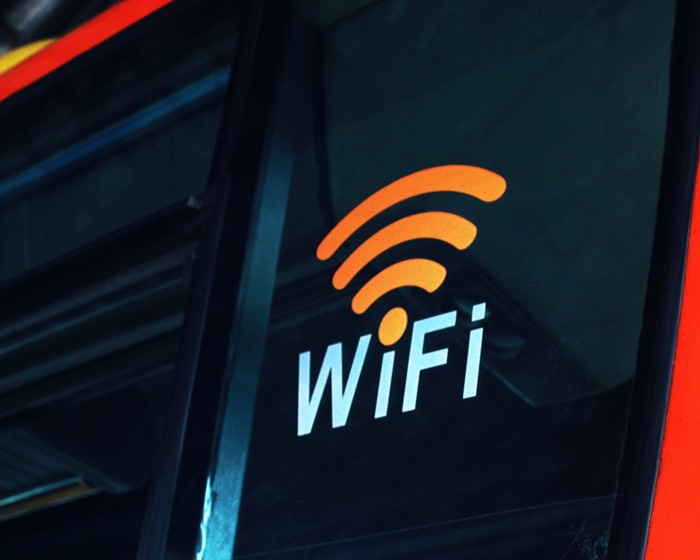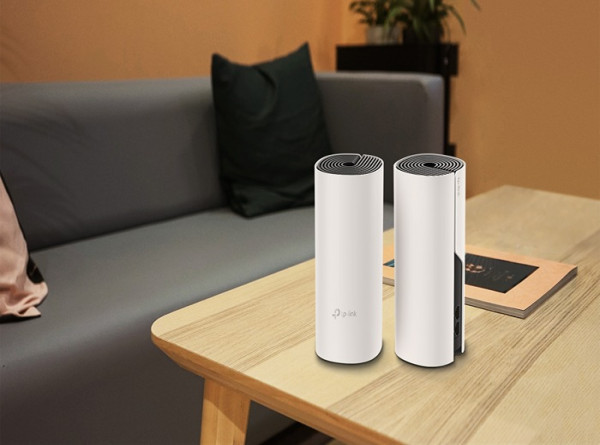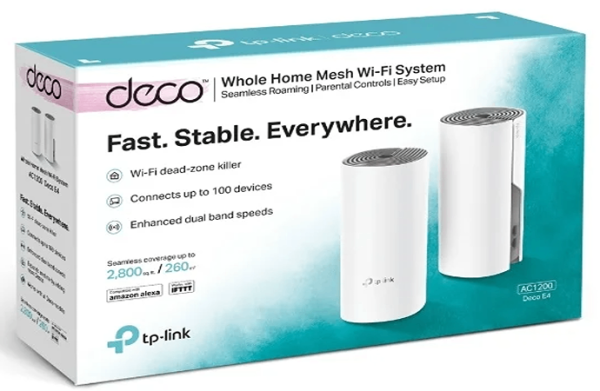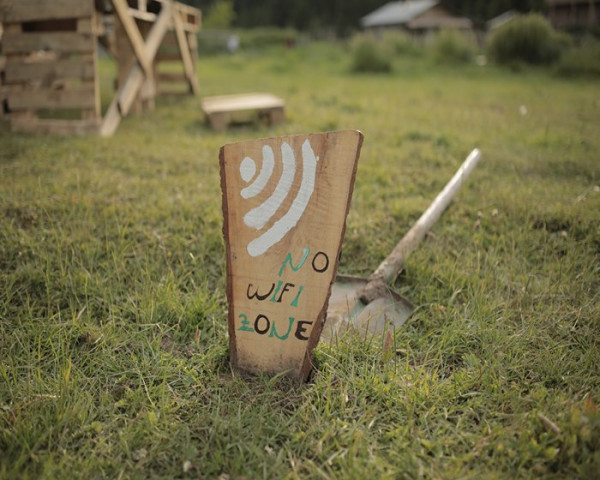Wi-Fi Extenders Explained
November 9th, 2022 | Rural Broadband by Gravity

A patchy Wi-Fi signal can be frustrating, especially when you want to relax and surf the net. Wi-Fi connectivity throughout your whole property may be difficult if your router is not up to the job. In this case you might want to consider a Wi-Fi extender as the solution to your woes.
Wi-Fi extenders can be a cost-effective way to spread coverage to different parts of your home. However, before you invest, it’s best to understand how they work and how to get the best performance out of your setup.
How do Wi-Fi extenders work?
Wi-FI extenders take the signal transmitted by your current Wi-Fi router and transmit it again. If a Wi-Fi extender is receiving a bad signal – like if it’s too far from your router- then the repeated signal will also be of poor quality. For this reason, you need to ensure that any repeater is close enough to the primary router to receive a good signal to extend to the rest of your home.
As these devices connect wirelessly to the router and expand the Wi-Fi signal to areas the router doesn’t reach, you might have to go through a bit of trial and error on physical placement before settling on your ideal location.
How far do Wi-Fi extenders work (distance)?
This depends on which one you buy, how much you want to spend, and factors to do with your house. If your house is made of concrete block, it is harder for signals to bounce around, compared to wooden construction, for example. Check the product description before purchasing to ensure it meets your requirements
Do they really work, and how effective are they?

Wi-Fi extenders work by taking the signal that they receive and re-transmitting it. If you put your Wi-Fi extenders right on the extremity of where you are currently receiving the signal, then they won’t work well as they are repeating a poor-quality signal. But if they are receiving a good quality signal from the router, they can work well.
Differences between a Wi-Fi extender, repeater and booster?
In most cases, Wi-Fi extenders, repeaters, and boosters are all simply different names for the same type of device. All serve the same goal of increasing the range of your wireless network, although it’s important to keep in mind that not all Wi-Fi extenders work quite the same way or offer the same features.
For example, while most Wi-Fi extenders connect to your main router over Wi-Fi, some connect through your home’s electrical wiring. So be sure to read the fine print and check the system requirements when picking a Wi-Fi extender for your needs.
Differences between an access point and a Wi-Fi extender?
Access points and Wi-Fi extenders are quite different, though they fall in the same category of devices. Both can boost your Wi-Fi network. Well, kind of. Here are some differences:
- Access points are used for larger spaces, like offices and outdoor areas. Wi-Fi extenders on the other hand, are meant for smaller spaces. If you’re looking to expand your Wi-Fi network at home, opt for a Wi-Fi extender.
- An access point allows Wi-Fi devices to connect to a wired network. In other words, it serves as a central hub for Wi-Fi devices. Wi-Fi extenders work in a way that extends the coverage area of your existing Wi-Fi network.
- An access point has the power to increase the network coverage in its designated area by 100%. A Wi-Fi extender is less effective, offering only about a 50% network coverage increase.
- Wi-Fi extenders are a more cost-efficient option for homes.
What is a mesh Wi-Fi System?

A mesh Wi-Fi system is also known as a whole-home Wi-Fi System. It uses a central router that connects to the modem and one or more separate routers (or nodes) that all act as access points for the Wi-Fi signal. This way, you can place the different nodes around your home and extend your coverage far beyond the range you’d get if you only had a single router.
Mesh is about the wireless network, where previously you might have had multiple wireless networks from your main router, and a Wi-Fi repeater. You would have to change between the networks manually, or worse, your device may have ‘held onto’ the network the with poorer signal as you move through the house, where it could have received a better signal from the other wireless network.
Mesh means when you have multiple repeaters or access points from the same brand/company they use the same network, and so your device will change between the different transmitters seamlessly as you move through the house, always finding the one with the strongest strength.
Wi-Fi Extenders FAQ
Do Wi-Fi extenders work with any router?
Unlike mesh Wi-Fi systems, Wi-Fi extenders are designed to work with almost any router, in much the same way as any other wireless device. If you’re concerned about performance, make sure the extender supports the same version of Wi-Fi as your router. For example, if your router supports Wi-Fi 6, getting an extender that supports Wi-Fi 6 will provide the best experience.
Are Wi-Fi extenders secure?
They are as secure as you want them to be. Some different devices come with different settings and security options. But for standard household use, and when configured right a Wi-Fi extender is secure.
How long do Wi-Fi extenders last?
Like any piece of electronic equipment, they have a life span, that can depend on quality when first purchased, use and environmental factors. If you have had your Wi-Fi extender for several years and notice a dip in performance then you might want to consider replacing it.
What is the best Wi-Fi extender for home use?

Gravity sell and recommend the TP-Link range of Wi-Fi extenders, we provide our customers support on using the TP-Link e4 range of extenders. Gravity finds this extender has a good value proposition, some great features and is at a great price point.
Get in touch with us today, and we can send one out to you and assist with the configuration and setup.
The e4 range can also mix and match with more of the e4 range, so you can buy the two-pack and then (if needed) add a third unit easily without having to buy a whole new set of equipment.
As standard, Gravity has available the two-pack for $239 + Shipping and we find it works great for most homes. If you need a little more coverage, we also have a three-pack available.
Connecting your Wi-Fi extender
How to connect a Wi-Fi extender a the router
Depending on the option you want to go for, it will either join via Wi-Fi, the same as your current devices, or the extender will connect with an ethernet cable to your current modem or router.
How to connect a Wi-Fi extender to a router without WPS
If your Wi-Fi extender is not WPS compatible, it will have another way of connecting through its own application. Check the instructions on your device.
Positioning a Wi-Fi extender
Place your Wi-Fi extender in a location where it gets a good enough receiving signal, but then will also transmit to the location you want to extend to.
How to make Wi-Fi extenders faster

Positioning is everything! Keeping away from microwaves, cordless phones and tinfoil hats ensures that the radio waves do not get interfered with. Otherwise, keeping things in an open area is also essential – sticking the transmitter or receiver down the back of the TV cabinet isn’t going to help the signal get to where you need it.
10 Wi-Fi extender tech tips
There can be a few reasons why your Wi-Fi extender is not working. Read below for the most common technical issues and their troubleshooting tips.
- Poorly positioned in the house: Take some time to find the optimum location for your extender for the best experience
- The receiver is too far away from the router to receive a good signal: Find a way to get them closer and without interference from other electrical appliances.
- Old school style receiver – past its best: It’s time to upgrade and take advantage of new technology!
- Transmitting to a far-away location: It’s best to run a cable from your router to the repeater in this scenario. A hardwired connection might be your best option.
- Devices inappropriately configured: Have you tried turning it off and back on again? Perhaps reset the factory settings and try to setup it up again.
- Too many devices connected to the network: Ensure your repeater/router can manage the number of devices you have connected to it. This includes phones, laptops, computers, smart TVs tablets and any other internet-enabled device in your home.
- User error: A fault can often come down to user error so check the instructions – twice!
- Having the same network name as other devices: This can cause confusion for users and for the network itself.
- Power: As funny as it sounds …ensure that the device is actually plugged in!!
-
Using multiple Wi-Fi extenders: You can use as many Wi-Fi extenders as you need simultaneously. It’s all about the size of your house, and where you position them. If you’re needing more than 2-3 extenders, then you probably need something a bit more complicated and it could be time to get the professionals in.

Our final thoughts on optimum connectivity
Wi-Fi extenders offer an easy-to-implement solution to help improve your Wi-Fi connection around your home. Remember, they work by repeating the existing Wi-Fi signal, so make sure you have an excellent signal available and don’t place your Wi-Fi extender at the extremity of your property.
- Get one that your ISP recommends, so they can be there to support you.
- Check the signal level of both your devices to the receiver, as well as the receiver to the router.
- Buy a recent model to take advantage of new technology.
- Location. Location. Location! - it really can’t be stressed enough to try and try again to ensure the location of your routers and extenders are in the optimum location. This may take some time but you’ll be happy you did it!
If you’re struggling with slow internet speeds then you should read how to get faster internet around your home. If you are unsure you are on the fastest connection type for your address you can contact one of our friendly experts to find out which internet connection option is best for you.